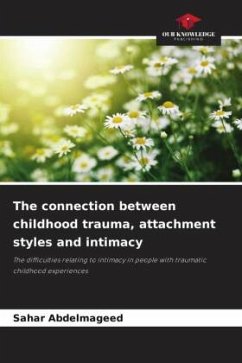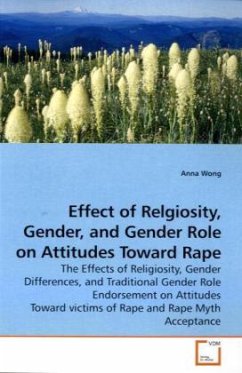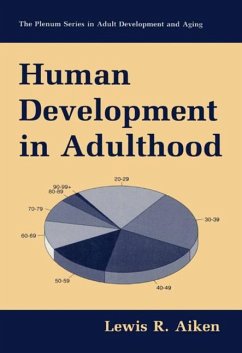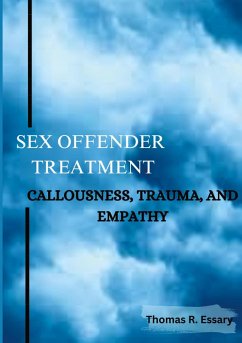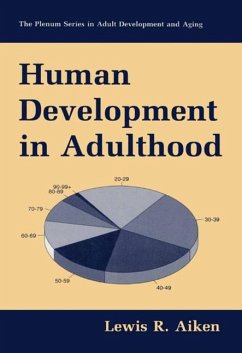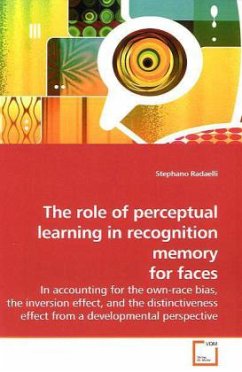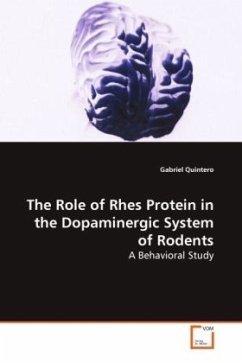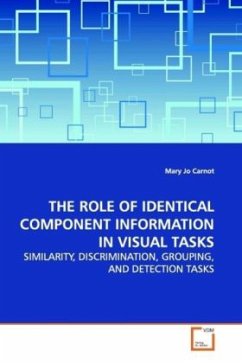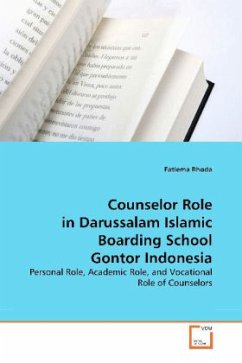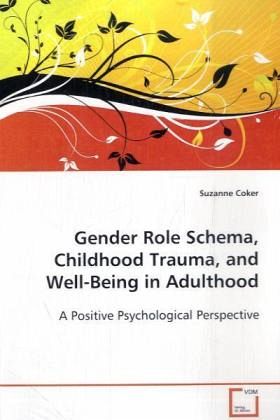
Gender Role Schema, Childhood Trauma, and Well-Being in Adulthood
A Positive Psychological Perspective
Versandkostenfrei!
Versandfertig in 6-10 Tagen
52,99 €
inkl. MwSt.

PAYBACK Punkte
26 °P sammeln!
Rates of illness have been shown to be influenced bygender and the experience of childhood trauma. Thisresearch investigated the pathways via which suchdifferences develop. First, the World BeliefsInventory was developed to assess world beliefs. Second, Structural Equation Modelling was employed,revealing that autonomy, competence, relatedness, andoptimism played a role in the process via whichgender role schema and the experience of childhoodtrauma influenced psychological, physical, and socialwell-being in adulthood. Additionally, world beliefsinfluenced social well-being, and the self-regul...
Rates of illness have been shown to be influenced by
gender and the experience of childhood trauma. This
research investigated the pathways via which such
differences develop. First, the World Beliefs
Inventory was developed to assess world beliefs.
Second, Structural Equation Modelling was employed,
revealing that autonomy, competence, relatedness, and
optimism played a role in the process via which
gender role schema and the experience of childhood
trauma influenced psychological, physical, and social
well-being in adulthood. Additionally, world beliefs
influenced social well-being, and the self-regulation
of the withholding of negative emotions influenced
physical well-being. This analysis should interest
professionals and academics in the social sciences,
and those interested in the statistical method of
hierarchical Structural Equation Modelling.
gender and the experience of childhood trauma. This
research investigated the pathways via which such
differences develop. First, the World Beliefs
Inventory was developed to assess world beliefs.
Second, Structural Equation Modelling was employed,
revealing that autonomy, competence, relatedness, and
optimism played a role in the process via which
gender role schema and the experience of childhood
trauma influenced psychological, physical, and social
well-being in adulthood. Additionally, world beliefs
influenced social well-being, and the self-regulation
of the withholding of negative emotions influenced
physical well-being. This analysis should interest
professionals and academics in the social sciences,
and those interested in the statistical method of
hierarchical Structural Equation Modelling.



